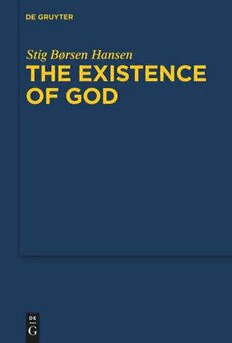
The Existence of God: An Exposition and Application of Fregean Meta-Ontology PDF
207 Pages·2010·0.807 MB·English
Most books are stored in the elastic cloud where traffic is expensive. For this reason, we have a limit on daily download.
Preview The Existence of God: An Exposition and Application of Fregean Meta-Ontology
Description:
This book explores two questions that are integral to the question of the existence of God. The first question concerns the meaning of “existence” and the second concerns the meaning of “God”. Regarding the first question, this book motivates, presents and defends the meta-ontology found in Gottlob Frege’s writings and defended by Michael Dummett, Crispin Wright and Bob Hale. Frege’s approach to questions of existence has mainly found use in connection with abstract objects such as numbers. This is one of the first studies to systematically present Fregean meta-ontology and apply it to theology. Frege’s meta-ontology is informed by his context principle. According to this, logico-syntactic notions such as “singular term” and “predicate” are pivotal to questions of what exists. These notions serve to throw light on the second question. Through thorough engagement with Old as well and New Testament texts, the book shows how Frege’s logico-syntactic notions are of crucial importance when seeking to understand the meaning and use of “God”. To complete the defence of Fregean meta-ontology, the book concludes by pointing to important differences between the otherwise closely associated concepts of an object found in Wittgenstein’s Tractatus Logico-Philosophicus and Frege’s writings.
See more
The list of books you might like
Most books are stored in the elastic cloud where traffic is expensive. For this reason, we have a limit on daily download.
